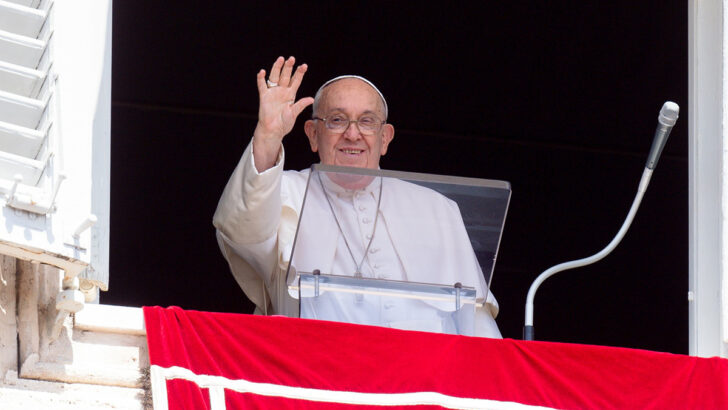Bishop Niall Coll
There is a long tradition in the Church that each new bishop picks a motto, normally chosen from Scripture, which seeks to encapsulate his thoughts, prayers and priorities as he begins his new ministry. When I arrived in Ossory in January of last year, the one I chose was ‘Christ Jesus our hope,’ taken from the opening salutation of the First Letter of St Paul to Timothy. You can imagine how confirmed I felt in adopting that theme when at much the same time Pope Francis announced that the next Holy Year (which happen every twenty-five years) due in 2025 would be a ‘Jubilee Year of Hope’.
Without doubt we find ourselves in a world today where hope is desperately needed, especially in the individualistic and secularised societies of the West, where many people have drifted from faith and from the Church. Lacking spiritual rootedness, and not just among the young, many struggle to find meaning and purpose in life.
Research by prominent international scholars like Jonathan Haidt in the United States, and survey after survey here in Ireland (see, for example, mentalhealthireland.ie) find that mental health crises, not least those associated with and overreliance on technology and social media, and also gambling and the abuse of drugs are on the rise. Amid this malaise, it often feels as though joy is slipping through our fingers like sand. So how can we talk about hope in a time like this?
Pope Francis, never a man to shrink from a challenge, declared the 2025 church year as a Jubilee of Hope, precisely because hope is not a luxury or frill—it is essential to life and human flourishing. It is not to be confused with mere optimism or wishful thinking: it is a deep and grounded belief that God is present, even in the darkest moments of our lives.
The Pope knows that in today’s world, many feel disconnected, lost, and overwhelmed by the pressures of modern life. Anxiety and depression have become all too common, particularly among our young people. The values of a completely secular outlook on life, so promoted by the commercial world, politics and the media, seem to promise freedom and self-fulfilment, but in fact often deliver isolation, confusion and unhappiness.
Many are searching for meaning, but the paths they take leave them more empty, more anxious and more alone.
Many loud voices tell us today that faith is outdated, that it has no place in the lives of modern people. But the truth is, the human heart has not changed. We are still searching for the same things that the generations before us sought: love, belonging, meaning, purpose, peace and hope of eternal life.
These things, alas, cannot be found in material wealth, social status or endless entertainment. As our better selves know well already, true meaning comes from knowing that we are loved by God and that we are called to love others in return: that’s the great double commandment of Jesus as he calls his followers both to love of God and love of neighbour (Mark 12:30-31).
Back to Pope Francis: this Jubilee Year is an invitation—not just to those who are already in the Church, but to all people—to rediscover hope. For those who have drifted away from faith, it is an invitation to come home, to find rest in God’s love and mercy. For those who are weighed down by the burdens of life, it is an invitation to lay those burdens at the feet of Christ. And for those who feel there is no meaning to life, it is an invitation to discover the profound truth that we are all made in the image and likeness of God, and that each of our lives has infinite value.
Being signs of God’s love
This Jubilee Year of Hope is not about going through the motions of religious practices, but about a radical transformation of our hearts. More to the point, it is about living out the hope we proclaim—not just in our words, but in our actions. When we live with hope, we become beacons of light in the darkness. We become signs of God’s love in a world that desperately needs it. That is why Pope Francis is his fourth and latest encyclical, Dilexit Nos, published recently, counsels us that ‘our heart is the ultimate judge, not of what we show or hide from others, but of who we truly are’. (No 6)
So, brothers and sisters, let us here in Ireland and in the wider Church everywhere, take up this call from Pope Francis. He will begin the Holy Year on Christmas Eve in St Peter’s Basilica, Rome and then, the following Sunday, it is to be initiated in every diocese throughout the world at Masses in the respective cathedrals.


 Pope Francis greets visitors gathered in St Peter’s Square at the Vatican to pray the Angelus August 18, 2024. Photo: CNS/Vatican Media
Pope Francis greets visitors gathered in St Peter’s Square at the Vatican to pray the Angelus August 18, 2024. Photo: CNS/Vatican Media